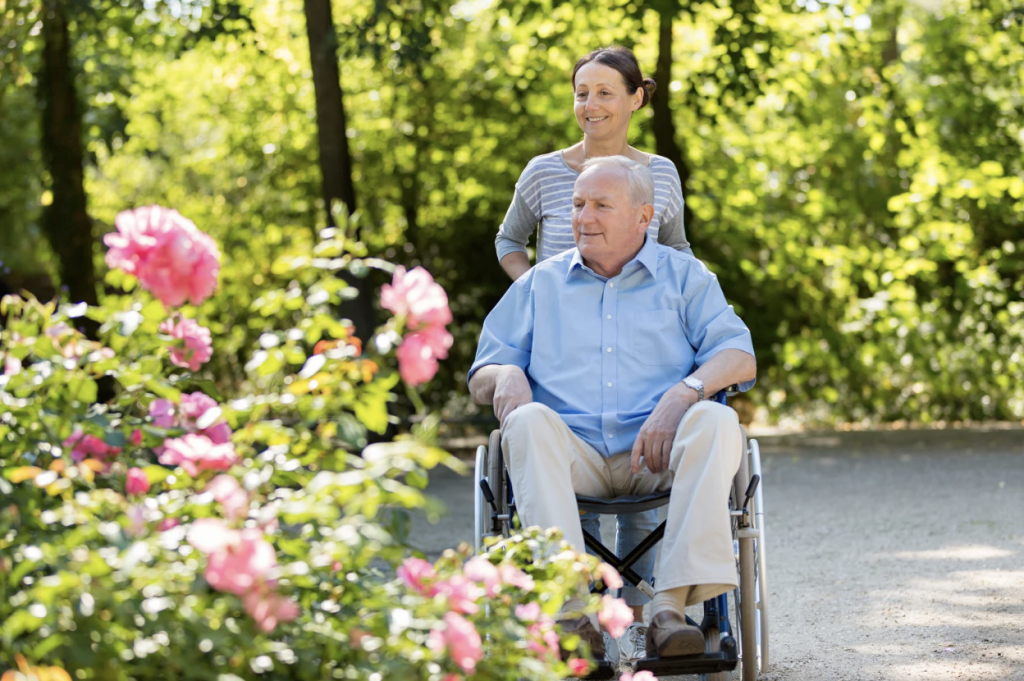Daily Enrichment for Seniors
As we age, maintaining cognitive health becomes just as essential as caring for our physical well-being. Cognitive decline doesn’t happen overnight—it’s a gradual process influenced by health, environment, lifestyle, and genetics. While memory changes are a natural part of aging, there are many proactive ways to support brain function and mental sharpness.
Assisted living communities like Courtyard Manor play a key role in protecting and nurturing cognitive health in older adults. From structured activities to personalized care and social connection, assisted living offers a supportive environment designed to keep minds engaged and spirits high.
What Is Cognitive Health?
Cognitive health refers to the ability to think clearly, learn new things, and remember information. It includes skills like attention, language, reasoning, and problem-solving, all of which help individuals maintain independence and a high quality of life.
As adults age, the brain undergoes natural changes, but cognitive decline is not inevitable. In fact, consistent mental stimulation, physical activity, nutrition, and social engagement are all linked to better cognitive function in older age. Taking steps to support cognitive health can reduce the risk of Alzheimer’s and other forms of dementia.
Why Assisted Living Matters for Cognitive Health
Transitioning to an assisted living community can positively impact cognitive health in several key ways:
1. Daily Routines That Support Brain Health
Structured routines help minimize confusion, improve memory, and reduce anxiety. In assisted living, seniors benefit from consistent schedules for meals, medication, and activities, creating a predictable and comforting rhythm to daily life.
These routines are especially beneficial for individuals with early signs of dementia or memory loss, as they offer a sense of control and security.
2. Social Interaction and Engagement
Studies have shown that social isolation is linked to a faster rate of cognitive decline. Assisted living communities like Courtyard Manor foster social connection through group dining, communal activities, and shared living spaces, creating natural opportunities to build friendships and stay mentally engaged.
Whether it’s joining a card game, attending a music therapy session, or chatting over coffee, these small moments of connection can have a big impact on long-term brain health.
3. Cognitive Stimulation Through Activities
Keeping the mind active is essential. Assisted living communities offer a wide variety of activities designed to challenge memory, focus, and reasoning—without feeling like work. Some examples include:
- Word games and trivia
- Storytelling groups or book clubs
- Puzzle and game afternoons
- Art and music therapy
- Technology tutorials to learn new skills
These activities not only promote cognitive health, but also provide a sense of purpose and joy.
Nutrition and Brain Function
The food we eat affects how we think and feel. A well-balanced diet rich in omega-3 fatty acids, fruits, vegetables, and whole grains has been linked to better brain health. At Courtyard Manor, residents enjoy nutritious meals planned with both taste and health in mind,ensuring they get the nourishment their brains and bodies need.
Personalized Care for Individuals
No two brains age the same way. That’s why personalized care is so essential. In assisted living, staff members are trained to notice subtle changes in behavior or memory and can adjust support as needed. Whether that means helping with reminders, coordinating medical care, or introducing new routines, this tailored approach helps residents feel seen and supported.
For residents with mild cognitive impairment or early dementia, this early intervention and support can significantly slow progression and improve quality of life.
Creating an Enriching Environment
Cognitive health is supported not just by what we do, but also by where we live. At Courtyard Manor, we create an environment that encourages independence while reducing stress. Comfortable living spaces, safe layouts, and calming decor all contribute to a sense of peace and orientation.
We also encourage families to bring familiar belongings into the resident’s room. Personal mementos, photos, and decor can stimulate positive memories and create an immediate emotional connection to the space.
The Role of Family
Family members play an important role in promoting cognitive health. Staying in touch, visiting often, and participating in community activities with your loved one helps maintain meaningful relationships and supports emotional well-being. It also creates opportunities to reinforce positive routines and shared memories.
If you’re concerned about your loved one’s memory or behavior, don’t wait—open the conversation, seek support, and consider how an assisted living community could help provide the right care and environment.
A Holistic Approach
Supporting cognitive health in assisted living requires a thoughtful, holistic approach that blends routines, activities, nutrition, environment, and compassion. At Courtyard Manor, we believe in caring for the whole person, not just their diagnosis or daily needs. Every program, meal, and interaction is designed to support dignity, independence, and lifelong learning. Schedule a tour today and discover a community that feels like home.

